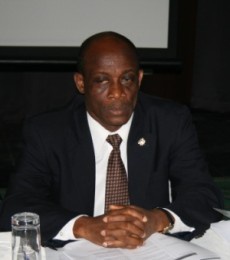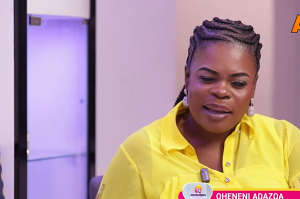Government is not borrowing only because it is living beyond its means, but for investments that bring a lot of positive returns to the country, Finance Minister Seth Terkper has said.
He said borrowing is done sometimes deliberately because government cannot rely on its own income to undertake all government projects.
“We borrow sometimes deliberately and I would say for investments. If we were to rely on our own income to construct a major road, it would take 15 to 20 years,” the minister said in Accra at The Forum, a ChannelTwo Communications platform for national dialogue.
The country’s rising national debt has been the subject of debate amid concern Ghana could return to its former heavily-indebted status. Public debt has surged from 31 percent of GDP in 2008 to 52 percent in September 2013.
Mr. Terkper said Ghanaians should not look at the public debt in negative terms only. “For example, we borrowed to construct the Akosombo Dam because it would have taken us probably 40 years to rely on our own income to complete that dam.
“We borrowed to do the Bui Dam, which will be functioning fully soon. We are seeing the benefits. I think there is no denying the benefits of the Akosombo Dam to the country. We borrowed to do Tema Harbour; we borrowed to do a lot of strategic national projects including our roads. If we borrow to do good investments, I don’t think they are that bad.”
Admitting that he is aware of the headlines that the national debt is too much, Mr. Terkper said borrowing to construct the gas-processing plant is a way of diversifying the economy.
“We could have allowed the gas to be flared, and just because you fear your public debt would rise, you would not want to get a diversified economy? There are tangible things we are borrowing to do. The important thing is what we borrow for and what projects we undertake.”
He noted that the reason debt has risen in the budget is that the country’s state-owned enterprises (SOEs), which are not strong and cannot borrow on their own balance sheets, have had government guarantee the loans they take -- and these loans are also treated as public debt.
“What we seek to tell Ghanaians is that the medium-term is hopeful. We should not be frustrated by some of the negative headlines about our public debt. The budget deficit is the biggest problem and the need to adjust must be pursued.”
He lauded the role of the private sector in helping transform the economy. “Almost all the players in the oil sector, with the exception of the Ghana National Petroleum Corporation (GNPC), have been major players in the offshore sector. They took the risk to invest in the sector and we are benefitting.”
Business News of Monday, 2 December 2013
Source: B&FT
Borrowing not bad when well-utilised - Terkper













